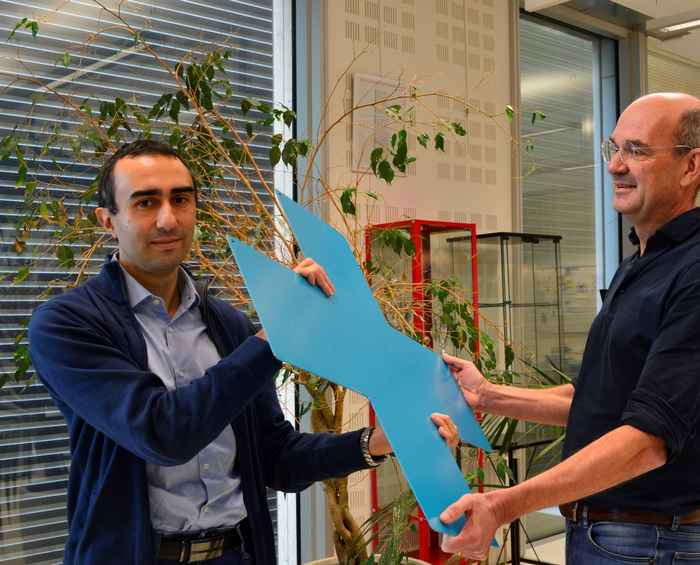New programme director Brain and Cognitive Sciences
9 December 2022

How do you, Harm, look back on your time as a programme director? What are you proud of and what will you miss?
"I have been a programme director for the past 10 years. I have enjoyed every minute. Specifically, I am always very proud of the Brain and Cognitive Sciences students. They are truly unique, come from different backgrounds, and shine out being ambitious and curious. Not only as individuals but also the community of students is very strong.
Things I admire and will miss for sure are the vibe of students and the interactions between them. Also as their teacher, I enjoy the small classes, bursting with lively discussions. Luckily, I keep on teaching in the programme (the course From Cell to Behaviour) and remain the domain coordinator. Maybe the moment is here to think about new courses along new scientific developments in the Amsterdam area.
Also, I like to point out that not only the students but also the programme team is wonderful: Vincent, Linda, and Anna. I’ve perceived our teamwork as open, well-organised and professional. Likewise for the IIS, where I found highly motivated colleagues. The position of the programme is highly relevant, in particular in relation to the Amsterdam Brain and Cognition Centre, and the participating research groups. Working together in this interdisciplinary setting, and connecting to researchers from different faculties and with different backgrounds has been and still is very inspiring and will bring the field of brain and cognitive sciences ahead."
Umberto, how did you come into contact with the programme?
"At first I met the students, requesting internships in my lab within the Swammerdam Institute for Life Sciences. The Brain and Cognitive Sciences students are the good ones, the ones you want! They are motivated and high achievers. Later, I was invited to join the Programme Committee. This was really nice, and I learned more about the courses and the community. I immediately appreciated the interdisciplinary approach and the strive for excellence of the master programme."
Everyone is very collaborative and there is a big motivation to move forwards.Umberto Olcese
What are you looking forward to as a programme director?
"We are now in a transition period, and in 2023 I will officially take over the position from Harm. There is already a very strong foundation with committed teachers and students. I wish to dive into how we can make the information about all the options within the programme even better accessible to our students, so that they can truly create their own path. We offer a lot of freedom in becoming an expert with interdisciplinary insights. The existing domains already help a lot, but how can we meet the ambitions of the students even better? How can we make our learning goals more visible? Also, we are an international master and my ambition is to keep the programme competitive at the international level."
Harm, do you have any recommendations for Umberto?
"Keep making connections with all the different stakeholders of the programme. Keep the programme unique in a field that is always developing. Cherish the MBCS brand and the connections with all the Institutes in Amsterdam."
Some final words, what do you wish for the students?
Umberto: "I wish for a lot of freedom in creating their own path. To meet their ambition and help them fulfil their full potential."
Harm: "I wish to help them develop and grow in a way that fits them. We train them to become an expert with an open mind to other disciplines. Stay open-minded and be creative."
Background
Harm Krugers studied Biology in Nijmegen, then went to Groningen for a specialisation in Medical Biology. After a PhD in Groningen (Biological psychiatry), a post-doc followed in Amsterdam on brain plasticity. Then he went as post-doc to the University of California in San Diego (UCSD), working on molecular biology of learning memory, and then came back to Amsterdam. He is currently Associate Professor at the UvA. His main research focus is on studying mechanisms how stressful experiences – also early in life – regulate memory and brain plasticity.
Umberto Olcese studied Biomedical Engineering, followed by a PhD in computational neuroscience in Pisa, Italy. During his PhD he spent a period at the University of Wisconsin-Madison, studying the neuronal mechanisms of sleep. A post-doc followed in experimental neurobiology at the Italian Institute of Technology in Genova, Italy. In 2013 became Assistant Professor at the UvA and his position at the moment is Associate Professor in Cognitive and Systems Neuroscience, at the Swammerdam Institute for Life Sciences (UvA). His main research focus is the study of the neuronal mechanisms of sensory processing, multisensory integration and consciousness.